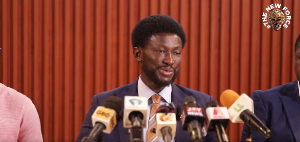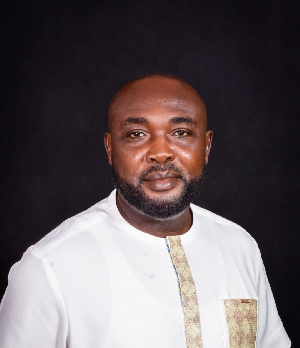Accra, Nov. 17, GNA - Dr Anthony Akoto Osei, a Deputy Minister of Finance and Economic Planning, on Friday called for a limit on tax exemptions granted to public and private institutions.
He singled out diplomatic exemptions and said it was contributing significantly to the heavy financial loss on the state. Dr Osei took on Parliament for also taking in too much exemptions and granting exemptions that were becoming uncomfortable to bear. He said there was nowhere in the world where diplomatic exemptions were without limits. " In this country, we allow people, including people who make huge sums of money to enjoy exemptions without having to pay required sums stipulated by law."
Dr Osei, NPP-Old Tafo was contributing to a statement by Mr Kwadwo Agyei-Aidoo, the Vice Chairman of the Finance Committee, which sought to make the revenue collection agencies increase their collection base, boost targets and help meet national goals. The statement also looked at means of simplifying tax payments and to seek how to reduce Ghana's reliance on donor support. He said issues of exemptions and their quantum were gradually taking a heavy toll on government finances and called on Parliament to take immediate action to arrest the situation.
To this Mr Enoch Teye Mensah, NDC Ningo Prampram, rose to ask if exemptions were not granted by and to the Executive and therefore the Deputy Minister's call should be redirected to the Executive for action. But Dr Osei argued that it was not necessarily so. "Even then, I believe that we need to take a common stand on working to achieve increased domestic revenue mobilization."
Earlier, Mr Samuel Sallas-Mensah, NDC-Upper West Akim, said the revenue agencies must work at ensuring that the monies they collected was beyond what they used as operational expenses to cover capital expenses.
He described the withholding tax concept as a lazy man's way of collecting tax and asked the Ministry of Finance and Economic Planning and the agencies to find a better way of raking in funds from people that would make refunds possible.
Mr Sallas-Mensah said the current exercise of collating a national identification system would be in futility if the issue on household numbering were not addressed.
"If this problem is not addressed, the problem of bounced cheques of tax payable by institutions, companies and individuals would remain as the owners cannot be identified."
He said at the begining of each year, the Internal Revenue Service for instance, was expected to raise provisional figures for businesses. "But this is not done. Provisional assessments do not come until as late as August when the state would be in dire need of revenue." Mr Maxwell Kofi Jumah, NPP-Asokwa, was upbeat about the need for the implementation of the house numbering scheme that he stressed was vital for the success of the national identification project. He said with the advent of information technology, people's homes and addresses could be found at the click of a button and urged the authorities to wake up to it.
Mr Lee Ocran, NDC-Jomoro, called on government to simplify tax processes and procedures to make tax collection less cumbersome and attractive to all.
"We must make the tax forms and other documentation such as registration processes simple and not a form of punishment." On the argument that tax registration was cumbersome and should be simplified, Dr Osei urged the house to avoid oversimplifying the tax collection and registrations process since it had the potential of opening the system to abuse. 17 Nov 06
Click to view details



Business News of Friday, 17 November 2006
Source: GNA
















